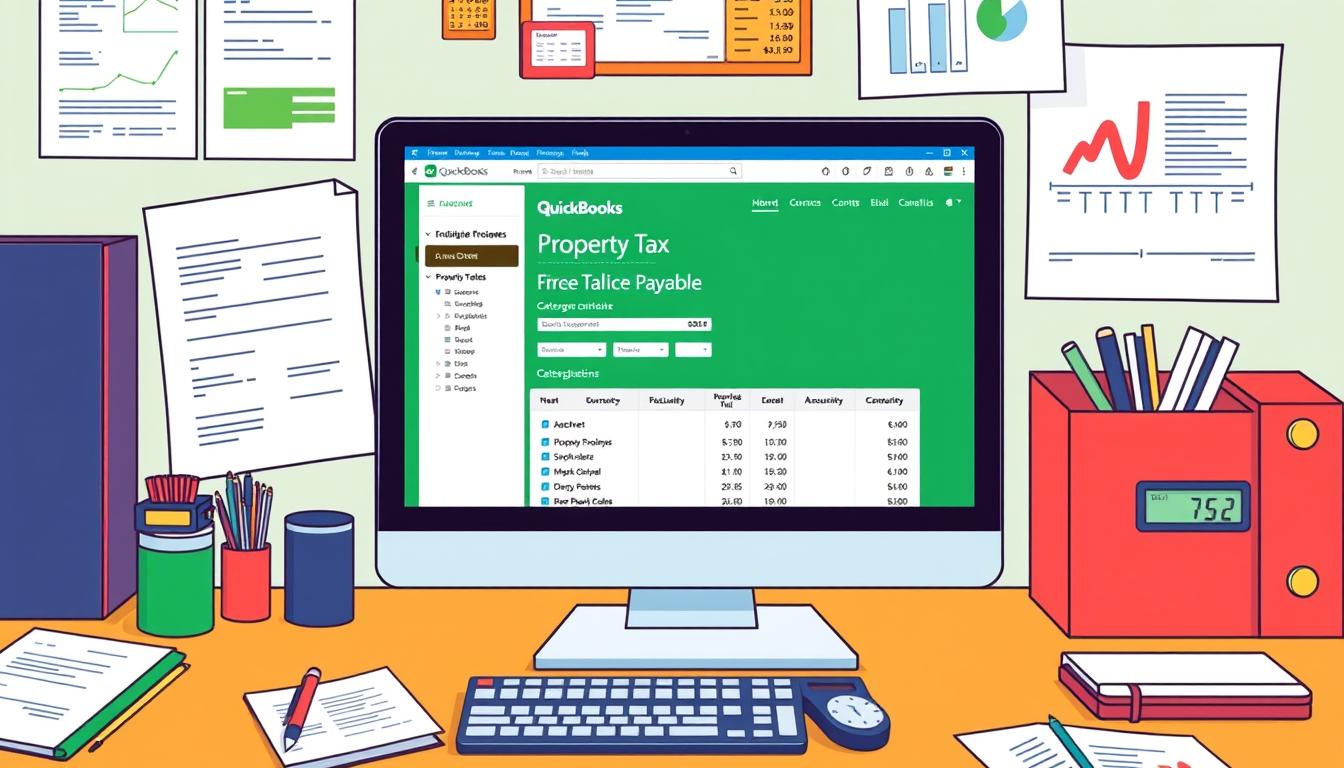
What is Quickbooks

Table of Contents
Welcome to our Quickbooks guide, a key resource for those looking to improve their business finances. Quickbooks is a top accounting software for small to mid-sized businesses. It makes handling tasks like accounting, invoicing, and payroll easier.
This guide will help you get the most out of Quickbooks. It ensures your business runs smoothly and efficiently. You’ll learn how this tool can change how you manage your finances.
Quickbooks is more than accounting software. It streamlines your business, saves time, and boosts productivity. If you want to better manage your finances, start here.
Key Takeaways
- Quickbooks is essential for modern business financial management.
- Offers comprehensive tools for tasks like accounting, invoicing, and payroll.
- Aimed at small to mid-sized businesses for optimizing their financial operations.
- Can save time and increase productivity in financial tasks.
- This guide will help you maximize the use of Quickbooks software.
Introduction to Quickbooks
In today’s fast-paced business world, managing finances well is key. Financial software like Quickbooks is essential. This Quickbooks introduction will cover the basics of why it’s a must-have for businesses.
What is Quickbooks?
Quickbooks is a user-friendly accounting software for businesses. It helps track sales and expenses, pay bills, and automate tasks. Its easy-to-use design lets business owners handle their finances without needing to be accounting experts.
Importance of Quickbooks in Modern Businesses
Quickbooks is crucial for accurate financial reports in today’s businesses. It saves time by doing routine tasks and gives real-time financial health insights. Its ability to integrate with other solutions makes it a great choice for growing companies.
Key Features of Quickbooks
Quickbooks is known for its strong features, perfect for small and medium businesses. It helps keep finances in check, making sure accounting is both precise and efficient.
Accounting
At the core of Quickbooks is a top-notch accounting system. It makes managing money easy, saving time and resources. You can track cash flow, match bank statements, and handle all financial tasks smoothly.
Invoicing
Quickbooks shines with automated invoicing, a must for businesses needing quick and accurate bills. It helps create and send invoices, track payments, and set up recurring invoices for regular clients. This keeps cash flow steady.
Expense Tracking
Expense tracking is key in financial tracking, and Quickbooks excels here. It lets you record, categorize, and even snap photos of expense receipts. This keeps a detailed record of all spending, helping manage budgets and find ways to cut costs.
Reporting
Quickbooks has powerful business reporting tools that let businesses create detailed financial reports fast. You get profit and loss statements, balance sheets, and custom reports. These reports help make smart financial choices and plan for the future.
| Feature | Description |
|---|---|
| Efficient Accounting | Streamlines financial processes with automated and precise accounting functionalities. |
| Automated Invoicing | Facilitates professional, recurring, and easy-to-manage billing processes. |
| Financial Tracking | Enables meticulous tracking and categorizing of expenses for optimized budget management. |
| Business Reporting Tools | Generates comprehensive reports like profit and loss statements to aid in strategic planning. |
Setting Up Quickbooks for Your Business
Starting with Quickbooks setup might seem hard, but with the right prep, it’s easier. Knowing what your business needs helps a lot. This makes setting up accounting software simple.
First, make sure you’ve installed Quickbooks right. This is the first step to using Quickbooks fully. After installing, you’ll need to add your business info like name and address.
Then, make Quickbooks fit your accounting needs. This means setting up a chart of accounts and tax details. A good chart of accounts is key for organizing your money.
Also, think about linking Quickbooks to your bank accounts. This makes it easy to track money coming in and going out. You can also add vendors and customers to make Quickbooks a full financial center for your business.
Here’s a quick guide:
| Setup Steps | Description |
|---|---|
| Install Quickbooks | Complete the installation process on your computer. |
| Enter Business Information | Input company details like name, address, and contact information. |
| Customize Chart of Accounts | Tailor the financial categories according to your business needs. |
| Set Up Tax Information | Configure tax settings relevant to your business. |
| Bank Integration | Link your bank accounts for seamless transaction tracking. |
| Add Vendors and Customers | Input details for easy tracking of transactions with vendors and customers. |
By carefully following these steps, your Quickbooks setup will be thorough and efficient. This makes setting up accounting software for your business easy.
Quickbooks Online vs Quickbooks Desktop
Choosing between Quickbooks Online and Quickbooks Desktop can be tough. Each has its own benefits, depending on your business needs. We’ll look at the key differences, including pricing, features, and how easy they are to use.
Price Comparison
Quickbooks Online is priced on a subscription basis, which is cheaper for many businesses. Quickbooks Desktop, on the other hand, is a one-time buy. The cost depends on the version you pick.
| Version | Price | Billing Type |
|---|---|---|
| Quickbooks Online Simple Start | $25/month | Subscription |
| Quickbooks Desktop Pro | $299.99 | One-time purchase |
Feature Differences
The feature sets of Quickbooks Online and Desktop are quite different. Online is great for businesses that need to work on the go. Desktop, however, is better for those who need detailed financial tools.
- Quickbooks Online: Cloud access, automatic backups, mobile app compatibility.
- Quickbooks Desktop: Advanced reporting, industry-specific tools, batch invoicing.
User Experience
The user experience varies between Quickbooks Online and Desktop. Online users like its easy design and access from anywhere. Desktop users prefer its speed and offline features.
How to Use Quickbooks for Payroll
Quickbooks makes payroll easy and efficient. This guide will show you how to set up Quickbooks payroll, pay employees, and file taxes. By following each step, you can make payroll smoother and follow tax laws.
Setting Up Payroll
First, make sure your Quickbooks account is ready for payroll. Go to the Payroll setup, enter your company’s FEIN, and pick your pay schedule. Make sure all employee info is correct and up-to-date. Quickbooks lets you customize it to fit your business.
Paying Employees
After setting up payroll, you can manage employee payments easily. Quickbooks offers direct deposit for timely salary payments. You can also print paychecks if needed. The interface makes it simple to track hours, calculate taxes, and pay employees fast.
Filing Payroll Taxes
Filing payroll taxes accurately is key for businesses. Quickbooks automates federal and state tax calculations. It helps you file forms like 941s and W-2s online. You’ll get reminders to avoid late filing.
Following these steps saves time and reduces errors. Quickbooks offers strong support for a smooth payroll process, from setting up payroll to payroll tax filing.
Quickbooks Integration with Other Software
Modern businesses need to work smoothly together. Quickbooks integration with other software helps a lot. It makes sure different parts of your business work well together.
One big plus of Quickbooks integration is linking financial data with CRM software. This lets sales teams make better decisions quickly. It also makes workflows smoother.
Integrating Quickbooks with project management tools is another big win. It helps track projects better and manage budgets. Managers can then keep projects on schedule and within budget.
Quickbooks also works well with payment gateways. This makes invoicing and getting paid easier. Customers pay faster, and businesses get better cash flow. Plus, it automates tasks, saving time for more important things.
In short, using Quickbooks with CRM software, project management tools, and other apps makes businesses run better. It helps all departments work together well. This approach boosts productivity and helps businesses grow.
Quickbooks Integration with Other Software
Integrating Quickbooks with other software makes business operations more efficient. It allows data to flow smoothly across different platforms. This makes business processes more cohesive.
CRM Integration
Good customer relationship management (CRM) is key for any business. Quickbooks can be linked with CRM tools like Salesforce and HubSpot. This makes managing customer data easier for sales teams.
It ensures they have the latest financial information. This integration improves customer interactions and keeps data consistent.
Project Management Tools
Tools like Asana and Trello are crucial for managing projects. When linked with Quickbooks, they offer detailed financial tracking. This helps with budgeting and financial reporting.
Quickbooks’ compatibility with these tools means better cost analysis and resource planning.
Payment Gateways
Linking payment gateways like PayPal and Stripe with Quickbooks automates transaction recording. This ensures financial records are accurate and up-to-date. It reduces errors and makes payments smoother.
This integration gives businesses a clear view of their finances. It promotes more efficient business operations.
The following table summarizes the key benefits of integrating Quickbooks with different types of software:
| Software Type | Integration Benefits | Popular Tools |
|---|---|---|
| CRM | Streamlined customer data, enhanced sales processes | Salesforce, HubSpot |
| Project Management | Budget tracking, financial reporting | Asana, Trello |
| Payment Gateways | Automated transaction recording, real-time updates | PayPal, Stripe |
By using these integrations, businesses can unlock Quickbooks’ full potential. This leads to more cohesive and efficient operations.
Top Quickbooks Tips for Small Business Owners
Small business owners can greatly improve their financial management with Quickbooks. By organizing the chart of accounts, doing regular financial checks, and using Quickbooks reports, they can make better decisions. This leads to more accurate and insightful business choices.
Organizing Your Chart of Accounts
Having a well-organized chart of accounts is key to tracking finances in Quickbooks. A structured chart helps categorize financial data accurately. This makes it easier to track expenses and profits. A tip is to customize the chart to fit your business, adding categories that are specific to your industry.
The Importance of Reconciliation
Regular financial checks are vital for keeping your records accurate. This involves comparing Quickbooks data with bank statements to find any mistakes. Doing this regularly helps catch errors early and ensures your financial reports are correct. These tips can help avoid financial problems.
Utilizing Quickbooks Reports
Using Quickbooks reports can give deep insights into your business’s financial health. Quickbooks has many reports, like profit and loss statements, balance sheets, and sales reports. Using these reports often helps you make informed decisions, see trends, and predict future finances.
| Quickbooks Tips | Benefits | Action Steps |
|---|---|---|
| Chart of Accounts Organization | Better Financial Tracking | Customize categories relevant to your business |
| Financial Reconciliation | Accurate Financial Records | Regularly compare Quickbooks data with bank statements |
| Quickbooks Reporting | Strategic Insights | Generate and review reports frequently |
Common Quickbooks Problems and How to Solve Them
Quickbooks can sometimes be tricky to use. Users often face common issues that need solving.
Here’s a list of common Quickbooks issues along with the solutions to each:
- Error 6123: This error happens when Quickbooks loses connection to your company file. Try renaming the “.ND” and “.TLG” files and then reopen Quickbooks.
- Slow Performance: This issue often comes from big data files. To fix it, run the “Clean Up Company Data” utility from the “File” menu.
- Bank Feeds Not Updating: This problem can be solved by re-entering your bank details. Make sure your internet is working well while you do this.
- Incorrect Balance Reports: This is usually a sync glitch. For a fix, check your bank account info and do a manual account reconciliation.
Knowing how to handle these common issues can make managing your finances easier and less stressful.
Here is a quick comparison of typical errors and their resolutions:
| Issue | Resolution |
|---|---|
| Error 6123 | Rename “.ND” and “.TLG” files |
| Slow Performance | Run “Clean Up Company Data” |
| Bank Feeds Not Updating | Re-enter bank credentials |
| Incorrect Balance Reports | Manual reconciliation |
Advanced Quickbooks Functionalities You Should Know
QuickBooks has many advanced features that help businesses manage their finances better. These tools go beyond just keeping track of money. They make financial tasks easier and more efficient.
Automation of Transactions
One key feature is automating transactions. This lets businesses set up recurring payments and invoices. It cuts down on manual work and mistakes.
With automated payments, you can get money on time. It keeps your finances in order.
Multi-Currency Management
Dealing with different currencies can be tough. QuickBooks makes it easier. It supports transactions in many currencies.
It updates exchange rates for you. This keeps your financial records accurate and helps with international business.
Customizable Invoices
QuickBooks lets you customize invoices. You can add your logo, change colors, and more. This makes each invoice look professional and unique.
Custom invoices also help your brand look good. They make talking to clients better and keep them happy.
Using these QuickBooks features can save a lot of time. They help with automating tasks, handling different currencies, and making invoices look good. These tools are key for managing finances well.
Quickbooks Mobile App: Manage Your Finances On-the-Go
The QuickBooks mobile app lets business owners manage their finances anywhere. It meets the need for flexibility and access. This way, users can keep an eye on their finances from anywhere, ensuring everything runs smoothly.
Mobile App Features
The QuickBooks mobile app has many features for easy financial management. You can create and send invoices, capture receipts, and manage expenses. You can also run important reports and do bank reconciliations right from your phone.
| Feature | Description |
|---|---|
| Invoicing | Quickly generate and send professional invoices. |
| Expense Tracking | Effortlessly manage and categorize expenses. |
| Receipt Capture | Capture and store receipts through your camera. |
| Bank Reconciliation | Keep your transactions up-to-date and accurate. |
Benefits for Business Owners
Business owners get a lot from the QuickBooks mobile app. It’s super convenient for managing finances on the go. This is key in today’s fast business world.
Quick access to financial data helps owners make fast decisions. This streamlines work and boosts productivity. The app’s strong features also meet all your accounting needs, giving you more time to grow your business.
Using the QuickBooks mobile app, business owners can keep operations smooth. They can also keep an eye on their finances, even when they’re not at their desk.
Conclusion
Quickbooks is a key tool for today’s businesses looking to manage their finances well. We’ve explored its many features, like accounting, invoicing, and expense tracking. These features are vital for keeping a business’s financial health in check.
Setting up Quickbooks is crucial for businesses. It’s important to know the difference between Quickbooks Online and Desktop. Also, integrating it with other software is key. Quickbooks’ mobile app is great for managing finances anywhere.
This summary shows Quickbooks is more than accounting software. It’s a full financial system that helps businesses thrive. Its ease of use, powerful features, and flexibility make it a top choice for financial management. Businesses can greatly benefit from using Quickbooks to simplify their finances.
FAQ
What is Quickbooks?
Quickbooks is a user-friendly accounting software. It helps manage finances by tracking sales and expenses. It also handles invoicing, bill payments, and payroll.
What are the main features of Quickbooks?
Quickbooks has features like automated invoicing and expense tracking. It also offers comprehensive reporting and robust accounting functions.
How do I set up Quickbooks for my business?
To set up Quickbooks, first install the software. Then, customize it to fit your business needs. This includes setting up invoicing templates and linking to bank accounts.
What are the differences between Quickbooks Online and Quickbooks Desktop?
Quickbooks Online is cloud-based with flexible pricing. Quickbooks Desktop is for local use with more features. Choose based on your business needs.
How can I use Quickbooks for payroll?
Quickbooks makes payroll easy by guiding you through setup and payments. It also helps with filing payroll taxes. This saves time and reduces errors.
Can Quickbooks integrate with other software?
Yes, Quickbooks integrates with many apps. This includes CRM systems, project management tools, and payment gateways. It enhances functionality and ensures smooth operations.
What tips can help small business owners maximize Quickbooks?
Organize your chart of accounts and do regular account reconciliations. Use Quickbooks reports to gain insights and make informed decisions.
How can I solve common Quickbooks problems?
Troubleshoot common issues like data corruption and connection errors. Use Quickbooks tools and guides. For help, contact Quickbooks support.
What advanced functionalities does Quickbooks offer?
Quickbooks offers features like automating transactions and managing multiple currencies. It also allows for customizable invoices. These features improve financial management efficiency.
What features does the Quickbooks Mobile App offer?
The Quickbooks Mobile App lets you manage finances anywhere. It includes expense tracking, invoicing, and payroll management. This ensures continuous financial oversight.
- Tags: intuit quickbooks, intuit quickbooks login, intuit quickbooks online, quickbook, quickbooks, quickbooks accounting software, quickbooks customer service, quickbooks customer service number, quickbooks desktop, quickbooks desktop 2024, quickbooks log in, quickbooks login, quickbooks login online, quickbooks online, quickbooks online accountant, quickbooks online accounting, quickbooks online customer service, quickbooks online login, quickbooks online pricing, quickbooks payroll, quickbooks self employed, quickbooks software, quickbooks support phone number, quickbooks time, quickbooks time login, quickbooks workforce
Top Products
- QuickBooks Desktop Pro 2024 US Version
- QuickBooks Desktop Pro 2023 US Version
- QuickBooks Desktop Pro 2022 US Version
- QuickBooks Desktop Premier 2024 US Version
- QuickBooks Desktop Premier 2023 US Version
- QuickBooks Desktop Premier 2022 US Version
- QuickBooks Desktop Accountant 2024 US Version
- QuickBooks Desktop Accountant 2023 US Version
- QuickBooks Desktop Enterprise 2024 US Version
- QuickBooks Desktop Enterprise 2023 US Version
- QuickBooks for Mac 2024
- QuickBooks for Mac 2023
Popular Posts

How to categorize property tax payable in quickbooks online
Knowing how to categorize property tax payable in QuickBooks Online is key for keeping your financial records right. Property tax payable is the amount your business owes in property taxes. It can greatly affect your financial health. By learning to categorize property tax well, businesses can make sure their financial statements show their true obligations.
This knowledge is crucial as we dive into the steps and best practices for handling property tax payable in QuickBooks Online.
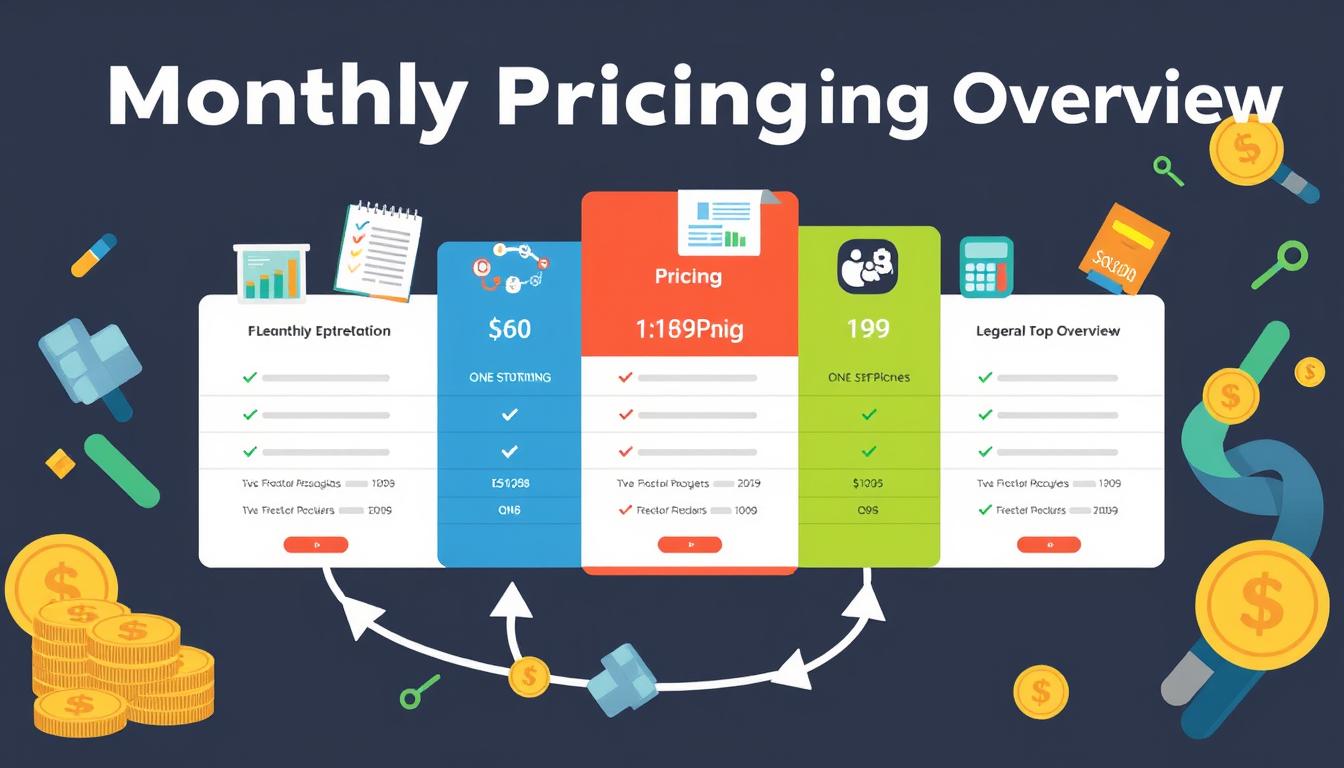
How much is quickbooks per month
Many users want to know the QuickBooks pricing for monthly costs. QuickBooks has various plans for different business needs. This lets users pick the right plan for their financial management.
What affects the QuickBooks monthly cost includes the QuickBooks edition, payment frequency, and extra features. This guide will explain the details of these plans. It will help you understand the costs of using QuickBooks for your business.

How does quickbooks work
QuickBooks is a key accounting software made by Intuit. It helps businesses manage their finances well. It works on a cloud-based platform, so users can access their financial data from anywhere.
This software makes tasks like bookkeeping, invoicing, and financial reporting easier. In this article, we’ll look at QuickBooks’ main features, its users, benefits, and challenges. We aim to help you understand how it can improve your financial management.

How do you record insurance payment in quickbooks
Recording insurance payments in QuickBooks is key for good insurance accounting. It helps business owners manage their money well and keep their books right. This is vital for the health of any business.
In this guide, we’ll show you how to record insurance payments easily. We’ll use QuickBooks guides and tips from accounting experts. This way, you can keep your financial records up to date.
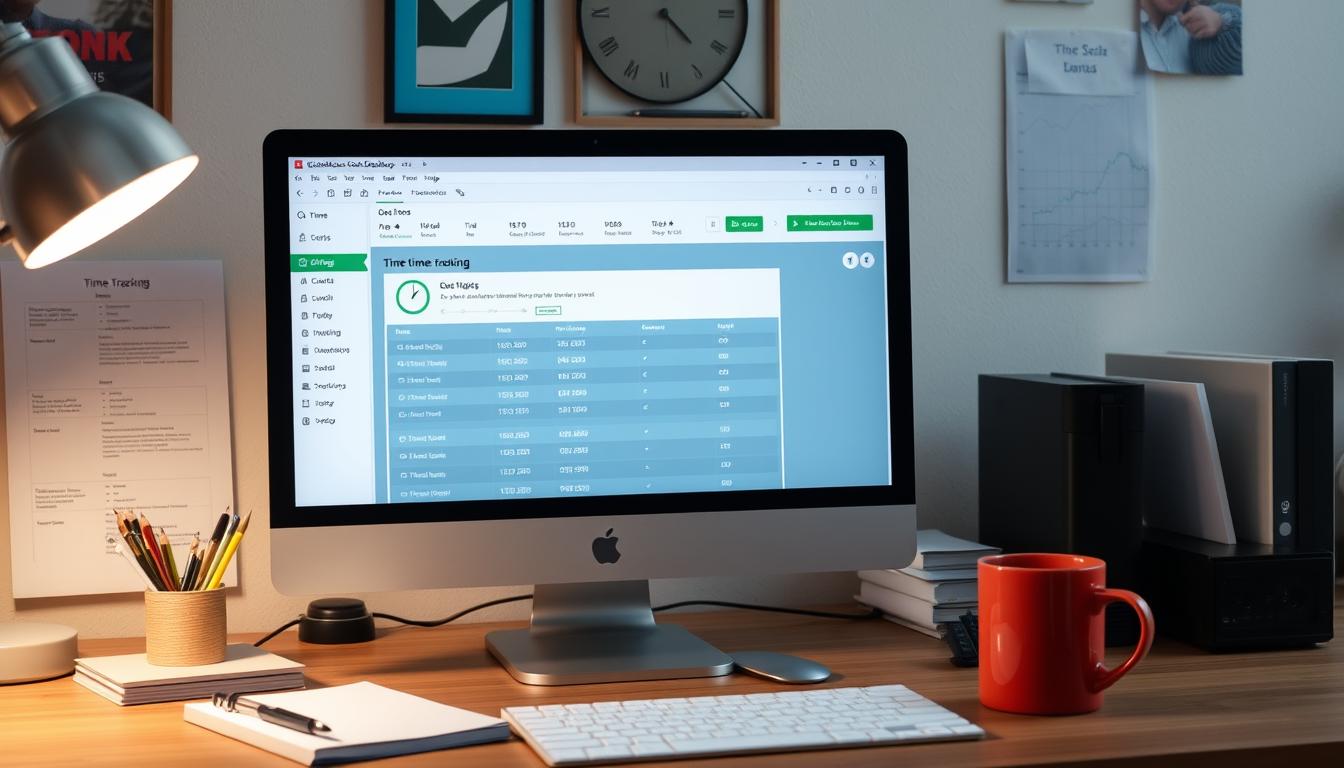
How do you clock in hours in quickbooks desktop
In today’s fast-paced world, tracking time well is key for good payroll management. This article will show you how to clock in hours in QuickBooks Desktop. It’s a top accounting software that makes managing tasks easier. By learning how to track time, businesses can work better and pay employees right.
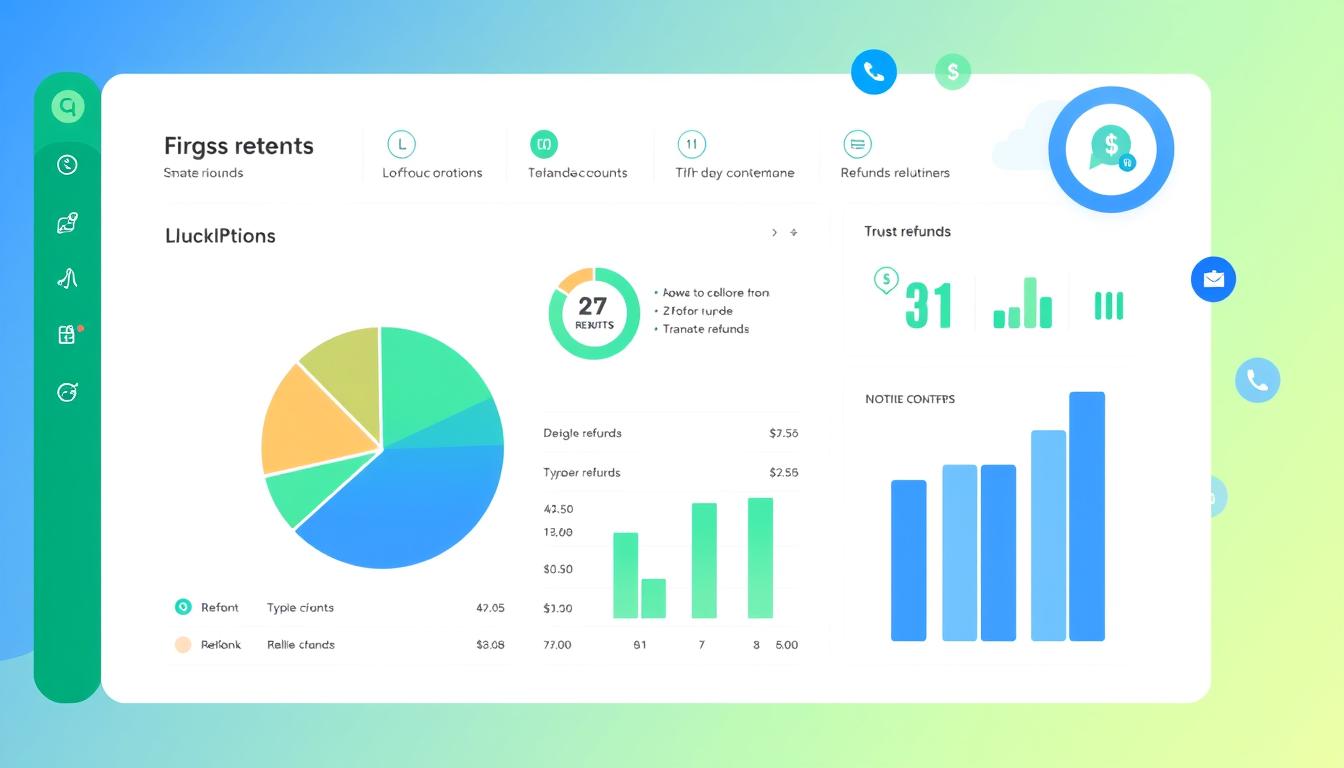
How are refunds categorized in quickbooks online
Knowing how to categorize refunds in QuickBooks Online is key for good financial management. It’s important to record refunds correctly to keep your finances clear. Businesses of all sizes can benefit from knowing how to do this right.
This knowledge helps make your financial records clear and accurate. It’s a basic step that can make a big difference.

Does quoteiq accept quickbooks online payments
Payment solutions are key in today’s business world. Many are looking into how platforms like QuoteIQ can improve their invoicing. A big question is: does QuoteIQ accept QuickBooks Online Payments? This article explores how QuoteIQ and QuickBooks Online Payments work together.
This shows how important it is to have good payment integration. It helps with cash flow and makes operations smoother. We’ll look at the benefits of using QuoteIQ with QuickBooks Online Payments. Plus, we’ll show you how to set it up.

Can you delete history under audit log quickbooks online
It’s important to know if you can delete entries from the audit log in QuickBooks Online. This is key for businesses that focus on financial accuracy and follow the rules. The audit log QuickBooks Online keeps a detailed history of changes to financial data. This ensures that all account activities are recorded clearly.
By tracking these changes, the audit log is crucial for good financial management. We will look into why the audit log matters and what happens if you try to delete its records. We’ll see how these actions impact your QuickBooks history.
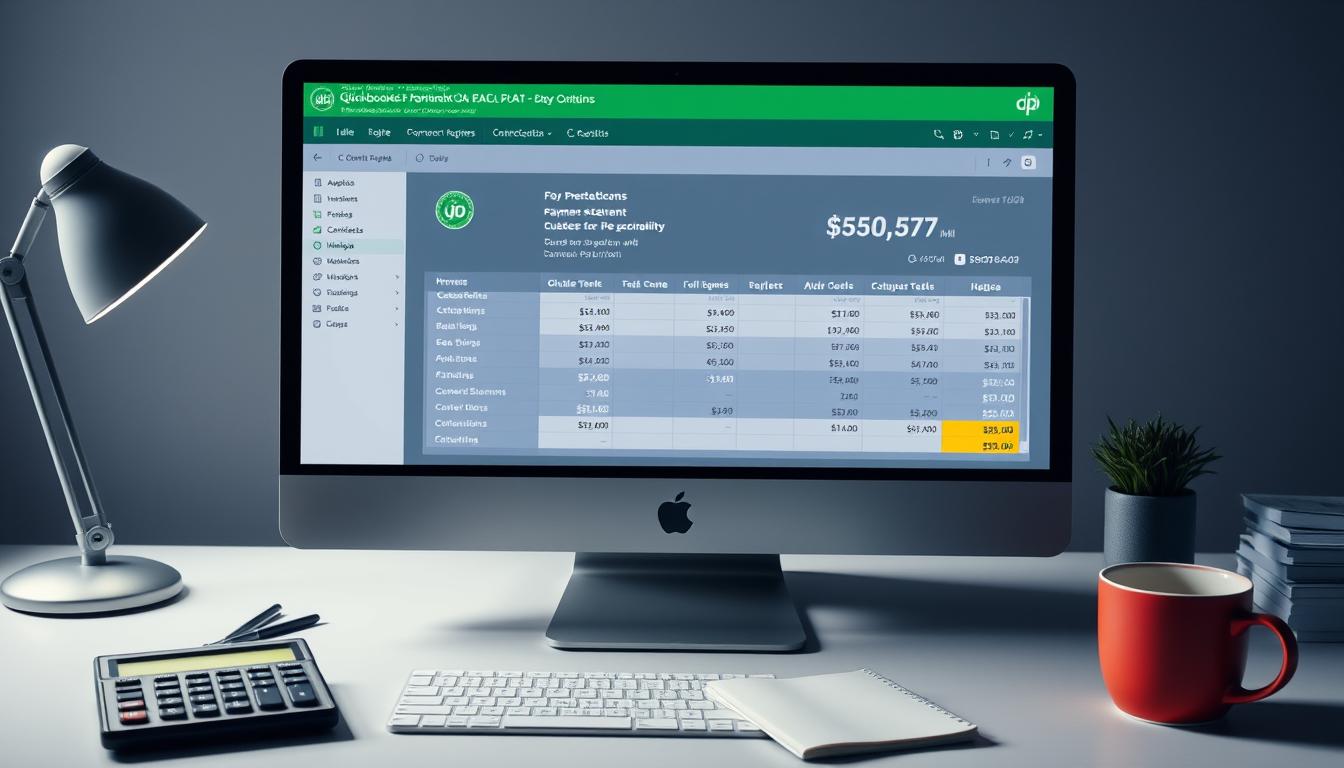
Can quickbooks recievepayment by statements rather that individual invoices
In today’s fast-paced world, businesses need quick and easy ways to handle payments. Many QuickBooks users wonder if they can pay by statements instead of invoices. This method makes accounting simpler for companies.
Using payment statements has big advantages over traditional invoices. QuickBooks helps businesses manage payments better. This article will show you how payment statements work in QuickBooks and how they can help your business.
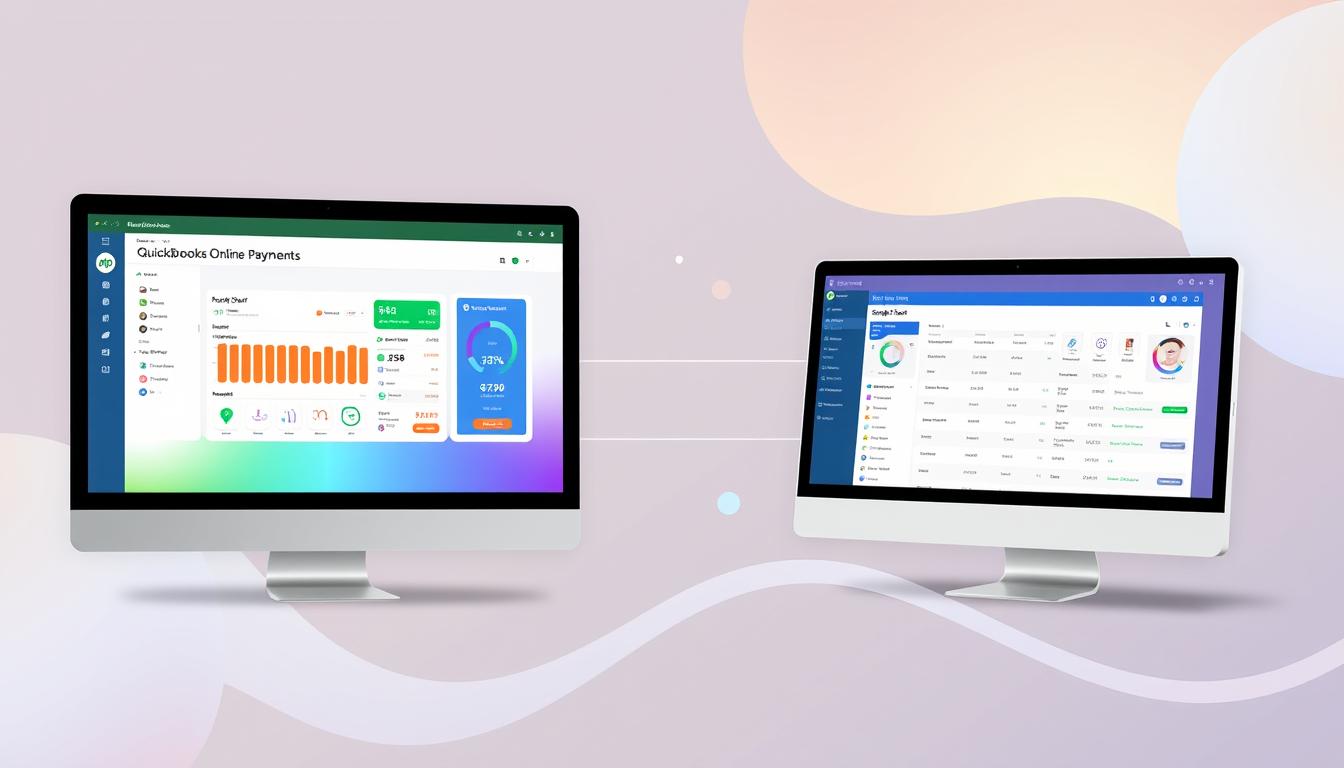
Can quickbooks online payments work with simple start
For small business owners, the question of whether QuickBooks Online Payments and QuickBooks Simple Start can work together is key. This integration is vital for managing finances effectively. It helps users handle transactions smoothly while using a basic accounting tool for solo businesses.
QuickBooks Online Payments lets users take payments online, making cash flow management easier. In this article, we explore how these two tools can boost efficiency for small businesses.